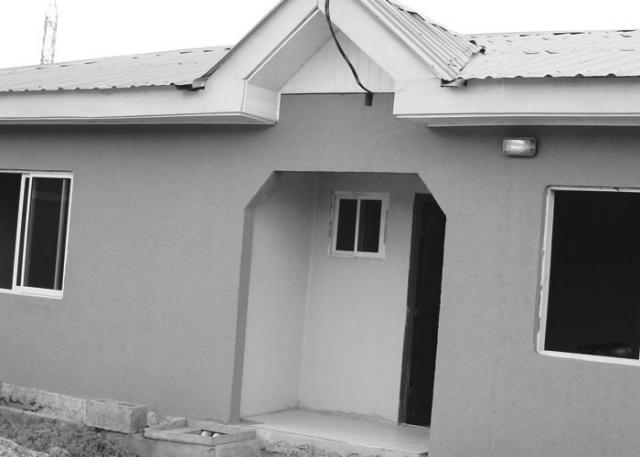moladi -delivering mass low cost houses is achievable
National Mirror - With Moladi, delivering mass low cost houses is achievable –Expert
moladi - Delivering mass low cost houses is achievable
 |
| Moladi Building System In Oshodi, Lagos. |
Tagged “Moladi Building System” the technology comes as a solution for rapid delivery of quality houses by empowering the local communities. Speaking with the National Mirror in Lagos at the weekend, the Managing Director, Moladi Technology Nigeria Limited, Mr Abraham Adewale, said the system addressed key challenges of the low cost and shortage of affordable houses facing the country. He assured that with the adoption of the Moladi building system, the nation’s 16 million housing deficit would be bridged within short period, depending on the scale of form works engaged.
Besides, he stated that with Moladi Technology, low and affordable quality houses would be made available to the working class and low-income segment of the society. Developed countries around the world, he said have adopted the technology to solve their housing problems, pointing out that solution for rapid delivery of quality houses in Nigeria is hinged on the new building system. According to him, with the engagement of 200 set of moulds at a time, the nation could be guaranteed of 10,000 housing units in a year.
He showed National Mirror the two units of three bedroom semi-detached bungalow constructed with Moladi, saying that the two houses cost N7.9 million The cost, he said could still be reduced depending on the magnitude of the housing project, pointing out that the more the houses involved, the lower the cost. Explaining the mechanism of the technology, Adewale said building system came with mould like form works from South Africa which are modified after the designs of customers and thereafter assembled on construction site before pouring concrete. “Mortal is then pumped inside the form works and left to dry for 15 hours after which the form works are dismantled and removed, leaving a solid wall smooth on both sides. The form works can be reused in another site by repeating the process,” Abraham said.
Highlighting the advantages of the new building technology, the managing director of Moladi Nigeria said the system was borne out of the need to reduce the cost of building houses, thereby, making ownership of homes easily accessible by the low income earners. He said in addition to cost benefit, the technology also ensured better quality and that with such timely delivery; the conventional system of building is ridiculed. He explained that other considerations such as fire resistance, heat absorption and burglary were already taken care of by the technology.
The Moladi technology combines a lightweight, reusable and recyclable modular injection moulded plastic formwork system and a lightweight aerated mortar, resulting in durable and permanent monolithic reinforced walling system, which is earthquake, cyclone and tsunami resistant. The modular components are assembled into easy to handle panels which are configured into a mould of the desired structure. These panels are joined to form wall configurations of any desired length and height with a wall cavity of either 100mm or 150mm. Once the assembly of the panels are complete, it does not need to be repeated. The formwork panels can be re-used 50 times; making the technology cost effective due to its repetitive application scheme, reducing the cost of construction and transportation significantly.
The steel reinforcing, window and door block-outs, conduits and other fittings are positioned prior to the wall cavity being filled with the mortar mix. The result is a wall with a smooth off-shutter finish that does not require any plastering, beam filling or chasing. Once the pre-assembled formwork panels have been removed they can be immediately re-erected on an adjoining site to be used on a repetitive basis; again saving valuable time in the construction process. With its streamlined and simplistic approach to construction, the application of the technology is not dependant on skilled labour to assemble, erect, fill or strip and enables community involvement in the construction of their own homes.
It brings to the field of construction all the benefits of a factory assembly line; quality assured work by unskilled labourers at a maximum rate of production with a high production output capacity. The technology is versatile in that it is easily adaptable to the specified design requirements and is suitable for all types of buildings, yet highly suited for use in repetitive housing schemes. This alleviates many of the logistical problems facing the construction of affordable repetitive housing projects.
Keywords - moladi, repetitive housing, factory assembly line, affordable, low cost, Nigeria, building system, wall cavity, mortar mix, formwork construction, plastic formwork system, formwork technology, bungalow, reusable recyclable form work, delivering mass low cost houses is achievable

